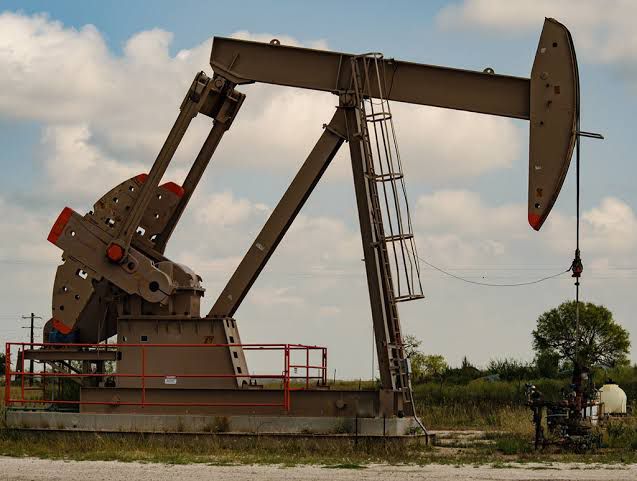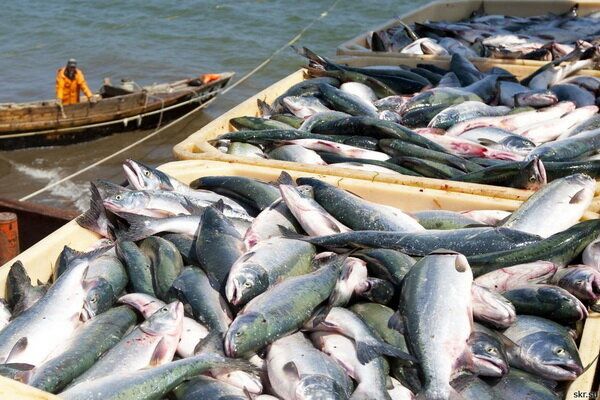Report from platform capital states that burning of fossil fuel is a key player largely contributing to high concentrations of greenhouse gases (water vapour (H₂O), carbon dioxide (CO₂), methane (CH₄), nitrous oxide (N₂O), and ozone (O₃) ) – in the atmosphere. Also highlighting that high concentrations of these gases has led to higher increase in the earth’s temperature– leading to most environmental challenges faced in recent years. However, strategic financing for renewable energy and rapid move-away from fossil fuel – is the right horse to bet on in saving the planet from environmental degradation.
Naturally, greenhouse gas (GHG) emissions play a significant role in making the earth warm and habitable for humans, plants and animals.
Notwithstanding, a recent report from Platform Capital titled: “Engineering a Greener and Sustainable World”– by: Dr. Akintoye Akindele – argues extensively that the continuous increase in GHG concentrations in the atmosphere is directly correlated with rising global temperatures, leading to various “severe environmental impacts”– such as: heat-waves, droughts, floods, wildfires and sea-level rise threatening coastal and developing communities.
The report argues that Global GHG emissions have shown a consistent upward trend since the Industrial Revolution, primarily driven by economic growth and population increase. However, global energy-related CO2 emissions, which constitute the largest share of total GHGs, reached a record high of over 36.8 gigatonnes, when all GHGs emissions are combined and measured, “total anthropogenic GHG emissions reached approximately 57.4”– which is higher than normal levels before 19th century industrial revolutions. The report however, pointed the energy sector as the largest contributor followed by industry, agriculture, forestry, and transportation.
Platform Capital, the firm responsible for this report is an African firm that catalyzes for sustainable growth in the region; as a sector that specializes in sustainable growth and an investment advisory firm; they deploy strategic capital alongside international and local partners, supporting high potential business into industry Giants. They are clamoring for a rapid shift in Africa energy sources to renewable sources and calling for strategic investments in green energy projects in the region.
Africa in the Global South.

Africa belongs to the global south region–consisting of developing continents like: Asia and Latin America; these regions contribute minimal to historical air pollution compared to the global north region which consists of industrialized countries such as: United States, Canada, and much of European Union –which are responsible for the bulk of air and gas pollution globally.
Global calculations of greenhouse gases (GHG) emissions has revealed a significant disparity between the Global North and the Global South–one that has continued to shape international climate negotiations and debates on climate justice.

Many environmental experts argued that Africa has little or no business with climate change and the shift to renewable energy– citing that the continent has not embarked on its own industrial revolution and has contributed very little to global environmental crises compared to countries in the global north – who have been burning coal and all sort of fossil fuel for their energy consumption to meet up with their industrialization.
Even within the global south, Africa contributes less to GHG emissions compared to other continents in the region. “China and India alone accounted for nearly 60% of the South’s emissions.” The remaining over 120 countries in the south region in which Africa nations are part of accounts for just 22% of its total emissions. Underscoring Africa role in global GHG emissions and other environmental pollutions.
While per capita emissions in countries like the U.S., Canada and Europe reached 16 tonnes in 2019, many nations in the Global South particularly Africa emit less than 2 tonnes per person, yet bear the brunt of climate impacts such as drought, flooding, and food insecurity.

“This imbalance intensifies the demand from the Global South for climate finance and technology transfer from the North.” The report argued.
Oil and Gas Contributions to Emissions in the Global South.
The Capital Platform Energy report further argues that oil and gas industry, along with other extractive sectors, is a major contributor to greenhouse gas (GHG) emissions in the Global South. These emissions arise from various phases of fossil fuel operations, including extraction, processing, transportation, and combustion. A lot of African countries are oil rich and operates an oil dependent economy; Nigeria, South Africa, Egypt and Algeria are largest economies in Africa and they mainly export oil.
“The upstream sector of the oil and gas industry, which includes exploration, drilling, and production of crude oil and natural gas, is a major contributor to greenhouse gas (GHG) emissions in the Global South. These emissions result from both direct operations and fugitive releases, significantly impacting local and global climate systems.”
However, one of the primary sources of emissions in upstream operations is methane leakage during drilling and extraction. Methane (CH₄), which is over 80 times more potent than CO₂ in the short term, often escapes from wells, pipelines, and processing facilities. According to the International Energy Agency, methane emissions from upstream oil and gas activities in developing countries are significantly underreported and under-regulated.

“The downstream sector of the oil and gas industry—which includes refining, distribution, and end-use of petroleum products—is a major contributor to greenhouse gas (GHG) emissions in the Global South.” The report further argues that this sector plays a critical role in the final stages of hydrocarbon processing and consumption, where significant emissions are generated both directly through industrial activity and indirectly through product use. Highlighting “petroleum refining” as one major source of emissions, describing the process as highly energy-intensive process that releases large amounts of carbon dioxide (CO₂), methane (CH₄), and nitrous oxide (N₂O).

Refineries in the Global South often operate with older, less efficient technologies, resulting in higher emissions per barrel processed compared to counterparts in the Global North. In countries like Nigeria, Indonesia, and India, the absence of stringent environmental regulations exacerbates these problems.
In Africa and parts of Asia, kerosene and diesel remain widely used for lighting and domestic energy, contributing to both CO₂ emissions and indoor air pollution.
Dealing with GHG Emissions Problems
Given the inherent tension between industrialized nations ; mostly Northern Hemisphere domiciled who have deployed fossil fuels over almost a century to build their nations and Southern Hemisphere nations seeking to rapidly scale their development and as such need significant amount of energy resources to do achieve their goals; both northern and southern hemisphere countries are gradually meeting of together and putting ideas to pooling of resources to tackle this that growing emission challenge.

The energy sector is at the forefront of the transition. Energy companies are heavily investing in renewable energy sources like solar, wind, hydropower, and geothermal to replace fossil fuel power plants. However, the Global North has made significant strides in decarbonizing electricity generation by rapidly transitioning from fossil fuels to low-carbon and renewable energy sources such as: solar panels, wind power generation. On the other hand the “energy transition underway in the Global South is playing a pivotal role in reducing greenhouse gas emissions from electricity generation.” Historically reliant on fossil fuels, many countries in the Global South are now increasingly investing in renewable energy sources such as solar, wind, hydropower, and geothermal energy. This shift in the Global south is largely due to falling technology costs, increasing energy demand, and international climate finance from majorly Global north partners and investors.
Agricultural practices to optimize fertilizer use, minimizing N2O release. Improved livestock management, including dietary adjustments and selective breeding, aims to reduce methane emissions from cattle. The report noted that “Practices like no-till farming and cover cropping enhance soil carbon sequestration, while anaerobic digesters convert manure into biogas, capturing methane and generating renewable energy.”
Northern hemisphere made significant strides in reducing greenhouse gas emissions from agriculture, primarily through public policies, market-based tools, and technological innovation. Agriculture accounts for a sizable portion of global emissions. However, Policy frameworks also aim to restrict practices contributing to deforestation and excessive nitrogen use.
Global South Countries are increasingly adopting practices such as conservation agriculture, drought-resilient crop varieties, and improved irrigation techniques to balance emission reduction with food production goals. These strategies not only enhance productivity but also contribute to reduced emissions from key sources such as rice cultivation, fertilizer use, and livestock. Deforestation, a significant contributor to agricultural emissions, are being addressed in several regions. Brazil, for instance, while historically linked to high deforestation rates, has emerged as a leader in sustainable practices like no-till farming and integrated crop-livestock systems. Similarly, countries like Nigeria and Angola have implemented World Bank-supported projects focusing on sustainable land use and water conservation.
Waste recycling has evolved over time to reduce emissions and mange waste disposal properly, with advanced recycling technologies.
However, aggressive reforestation and afforestation programs to absorb atmospheric CO2 and Sustainable forest management practices to ensure forests remain carbon sinks–are introduced to prevents the release of stored carbon and promote sustainable forest management— to curb the menace of deforestation in both north and south global hemisphere.
The adoption of Electric vehicles EVs is reducing emissions from the transportation sector. The report further calls for priority investment in EVs for the global south, as the region is yet to fully follow the trend from the northern hemisphere.
However, platform capital are leading the collaboration of both foreign and domestic partnership and investment in the renewable energy sector in Africa. The minimal greenhouse gases emissions from Africa could still be reduced to ‘very little.’ “Platform Capital is not only responding to this urgency but actively leading the charge—delivering tailored, technology-driven renewable energy solutions that align profitability with environmental responsibility.” The report noted.












